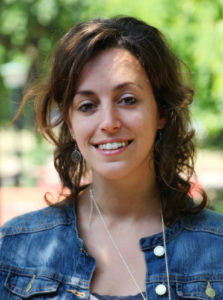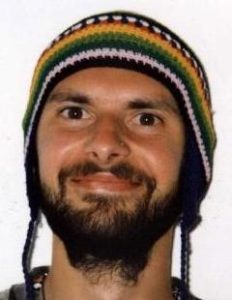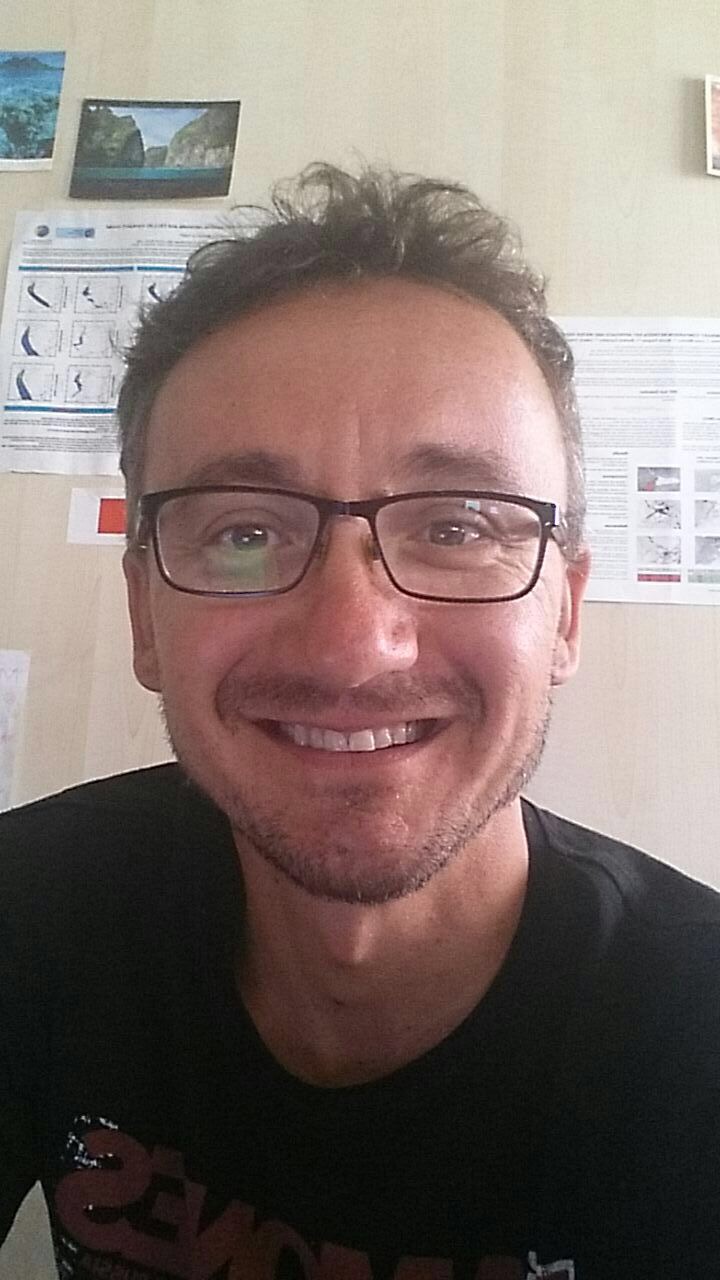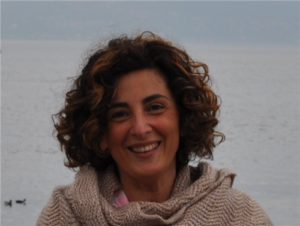Fourth School 2019
Science Communication School: |
16-19 September 2019, Trieste, Italy. |
GeoScience Communication School: |
16-21 September 2019, Trieste, Italy. |
Over the past decades communication and outreach has become a fundamental concern of state-of-the-art research communities.
The relationship between science and society has begun to change radically and communication has become a necessity.
Important decisions involving scientists’ research are no longer made by the scientific community but by politicians, private companies and by the media.
Moreover the decisions often involve the general public whose opinion influences the politicians and the media behavior.
For these and other reasons it is important to improve the dissemination of research and to convey the value of a scientific way of thinking even to those who have nothing to do with science.
Furthermore it is important to improve how scientists share results with the scientific community, in order to enhance the quality of the research and to facilitate collaborations. : it is necessary to learn how to make posters effective, how to communicate aims and methodologies in scientific papers and proposals, how to get projects funded.
Traditional scientific training, typically does not prepare scientists and engineers to be effective communicators outside of academia.
Attending the school students will learn how to effectively convey important research results to a public of both experts and laypeople.
Students will learn how to write an abstract, how to structure effectively a poster about their research, how to write a paper.
Also students will receive coaching from experienced researchers on proposal and report drafting, and on how to improve communication to policymakers, general public and school students.
Being involved in science communication activities will allow the students to gain communication technical skills that will be useful in their wider lives and will remind the students that science is an heritage that needs to be shared as a part of our culture.
The school is divided into 2 modules, the first 4 days will be dedicated to the science communication in general so it will be open to researchers of all fields, the last 2 days will be focused on Geoscience communication with specific laboratories with experts explaining how to give the best ideas about Earth sciences to different types of audiences.
The school has the aim of offering overview and training of scientific communication skills in all its forms and will treat communication not only with an “educative aim” but also with a “scientific aim”.
The lecturers will therefore not only present an overview of science communication from a theoretical point of view, but also will offer practical activities on abstract/paper writing and poster editing, on proposal and report drafting, and on how to improve communication to policymakers, general public and schools.
All the lectures will be accompanied by laboratories and students will experience concrete activities: for example each student will present a poster at the beginning of the school and posters will be corrected and improved at the end applying what learned during the school; at the end of the school students will try to provide accurate but concise information about their science to the general public recording a short movie (famelab-like) which will be published into our website to get feedbacks.
Registration deadline: 31 July 2019
Science Communication School (SCS), 16-19 September, Stazione Rogers, Riva Grumula 14, 34123 Trieste, Italy– Early bird registration fee is 150€ including excursion, coffee breaks and teaching material. Deadline 15th of May 2019.
– Regular registration fee is 180€ including excursion, coffee breaks and teaching material. Deadline 31st of July 2019.
To register please follow this link:Registration to the Geoscience Communication School |
GeoScience Communication School (GCS), 16-21 September, Stazione Rogers, Riva Grumula 14, 34123 Trieste, Italy– Early bird registration fee is 200€ including excursion, coffee breaks and teaching material. Deadline 15th of May 2019.
– Regular registration fee is 230€ including excursion, coffee breaks and teaching material. Deadline 31st of July 2019.
To register please follow this link:Registration to the Science Communication School |
For further information, and if you need help in arranging an accomodation in Trieste please write to Rita Nogherotto, rnoghero@ictp.it
Organizing committee

Rita Nogherotto, PhD
The Abdus Salam International Centre of Theoretical Physics (ICTP),
UNESCO, Strada Costiera, 11, 34151, Trieste, Italy
phone: +39 040 2240 309

Riccardo Biondi, PhD
Università degli Studi di Padova, Dipartimento di Geoscienze,
Via Gradenigo 6, 35131, Padova

Sarah Davies, PhD, Assistant professor
Department of Media, Cognition and Communication

Stefano Corradini, PhD
Istituto Nazionale di Geofisica e Vulcanologia (INGV),
Via di Vigna Murata 605 – 00143 Roma

Gemma Musacchio, PhD
Istituto Nazionale di Geofisica e Vulcanologia Laboratorio Divulgazione Scientifica ed Attività Museali (INGV),
Via di Vigna Murata 605 – 00143 Roma
Lecturers
Keynote Lecturers
- Dr. Clare Wilkinson, University of the West England, Bristol (UK)
Associate Professor in Science Communication at UWE Bristol, teaching predominantly on postgraduate science communication courses, as well as carrying out a variety of projects involving evaluation and research. Clare is Co-Director of the Science Communication Unit, with primary responsibility for activities in relation to the Faculty of Health and Applied Sciences.
Clare module leads two MSc science communication modules and provides contributions to a variety of other undergraduate and postgraduate programmes.
Clare has published in journals including PLOS ONE, Public Understanding of Science, Science Communication, Qualitative Health Research and Health, Risk and Society. In 2009, she co-authored the book Nanotechnology, Risk and Communication with Alison Anderson, Alan Petersen and Stuart Allan for Palgrave Macmillan. Clare is the co-author (with Emma Weitkamp) of Creative Research Communication: Theory and Practice for Manchester University Press.
- Dr. Gemma Musacchio, Istituto Nazionale di Geofisica e Vulcanologia (INGV), Milan (Italy)
Gemma Musacchio is a scientist at Istituto Nazionale di Geofisica e Vulcanologia (INGV, Italy) where she does research in the field of communication of seismic hazard and risk. She has a PhD in Earth Science (University of Milano, Italy) and a Master in Scientific Journalism and Institutional Communication of Science (University of Ferrara, Italy). She has been a research scientist at several institutions in Europe, USA and Canada. Her background research interests include the study of the structure, composition and evolution of the Earth Lithosphere. She has published several papers in international journals and books, and coordinated European projects devoted to risk communication; she is a jury member of science dissemination national prizes.
Selected Publications
– Musacchio, G., Falsaperla, S, Piangiamore, G. L., Solarino, S., Crescimbene, M., Pino, N. A. Eva, E., Manzoli, F. , Butturi, M. , Fabbri, M. and Accardo M. (2017). KnowRISK on Seismic Risk Communication: the set-up of a participatory strategy. In: Proceedings of the International Conference on Earthquake Engineering and Structural Dynamics, 12-14 June 2017, Reykjavik, Iceland.
– Musacchio G., Piangiamore G. L., D’addezio G., Solarino S. and Eva E. (2015)- “Scientist as a game”: Learning geoscience via competitive activities. Annals of Geophysics, DOI: 10.4401/ag-6695
– Musacchio G., Falsaperla S., Bernharðsdóttir A.E., Ferreira M.A., Sousa M.L., Carvalho A. and Zonno G. (2015) Education: can a bottom-up strategy help for earthquake disaster prevention? Bulletin of Earthquake Engineering, DOI: 10.1007/s10518-015-9779-1
Invited Lecturers
- Dr. Chiara Saviane,
Scuola Internazionale Superiore di Studi Avanzati (SISSA),Trieste, Italy
Chiara Saviane is project manager of the Master’s course in Science Communication “Franco Prattico” at SISSA (mcs.sissa.it). She is involved in different training activities in science communication at the national and international level as well as in the preparation and management of different European projects. In particular she has been in charge of the European project “BID – brains in dialogue” aimed at fostering interdisciplinary dialogue on the impact of new technologies in neuroscience through workshops and outreach events, website and press office activity. Chiara also coordinates the organization of the Brain Awareness Week in Trieste, a global event aimed at increasing public awareness of brain research. She has previously done several years of research in neuroscience in Italy and UK and has worked as Science Programme Officer at the Wellcome Trust in London.
- Dr. Riccardo Biondi, Università degli Studi di Padova, Dipartimento di Geoscienze, Padova (Italy)
Riccardo Biondi is a freelance researcher, graduated in electronic engineering with a PhD in atmospheric physics. His research activity is focused in extreme atmospheric events such as tropical cyclones and volcanic eruptions. He is Marie Curie alumnus and AXA Research Fund alumnus, Management Committee Member of two COST Actions and founder of the (Geo)Science Communication School and the international training school on Convective and Volcanic Clouds (CVC) detection, monitoring and modeling.
- Dr. Agostino Goretti, Civil Protection, Rome (Italy)
Agostino Goretti joined in 1997 the National Seismic Survey, merged in 2002 in the National Civil Protection. He graduated in Civil Engineer at Rome University where he received his PhD in Structural Engineering. As senior earthquake engineer he has been mainly involved in development, implementation and monitoring seismic risk assessment and mitigation programs. He participated at several EU-funded projects devoted to the implementation of national and multinational resources for post-earthquake safety and damage assessment to be deployed in seismic international emergencies. UCP (Union Civil Protection) trained, he participated at national and international seismic emergencies and exercises. Structural engineer expert in the UCPT deployed to Nepal (2015), Ecuador (2016) and Mexico (2017). He gave academic lectures, and talks at science festivals concerning seismic emergencies and including disaster risk management for schools .
– Goretti A., Molina Hutt C. and Hedelund L., (2017), Post-earthquake safety evaluation of buildings in Portoviejo, Manabí province, following the Mw7.8 Ecuador earthquake of April 16, 2016, International Journal of Disaster Risk Reduction, Vol. 24, Pages 271-283.
– Goretti A., (2015), Damage Scenario in Seismic Risk Analysis and Mitigation, E.A. Dominijanni and A. Goretti editors, Complex Urban Programs and EU Policies, Crotone Municipality
– Dolce M., Goretti A., (2014), Lessons Learned and Preparedness in International Interventions on Post-earthquake Safety Assessment, Proc. Conf. Elicit to Learn Crucial Post-crisis Lessons, Elite project, Warsaw, 25-26 June 2014.
- Dr. Raffael Himmelsbach, Trondheim University, Trondheim (Norway)
Raffael Himmelsbach is senior advisor for responsible research and innovation at the Centre for Digital Life Norway at NTNU. After earning his PhD in political science from the University of Lausanne, Switzerland, Raffael held postdoc positions at Linköping University and Aarhus University. His academic expertise focuses on scientific governance, the role of expert advice in public policy, and participatory management of natural resources. Recent publications include:
– Himmelsbach, Raffael. 2017. “How Scientists Advising the European Commission on Research Priorities View Climate Engineering Proposals.” Science and Public Policy, doi:10.1093/scipol/scx053.
– Himmelsbach, Raffael. 2018. “Politikberatung im politischen System der Schweiz.” In Handbuch Politikberatung, 11:1–16. Wiesbaden: Springer Fachmedien Wiesbaden. doi:10.1007/978-3-658-07461-6_42-1.
- Dr. Rita Nogherotto, The Abdus Salam International Centre of Theoretical Physics (ICTP), Trieste (Italy)
Rita Nogherotto is a researcher, graduated in physics with a PhD in clouds microphysics. She works on climate modeling and extreme atmospheric events representation. She is member of a COST Action, founder of the (Geo)Science Communication School and co-organizer of the Pint of Science event in Trieste. Actively involved in science dissemination in the schools, with a special focus on climate change and its impacts.
- Daniele Tenze, Freelance Actor and Researcher